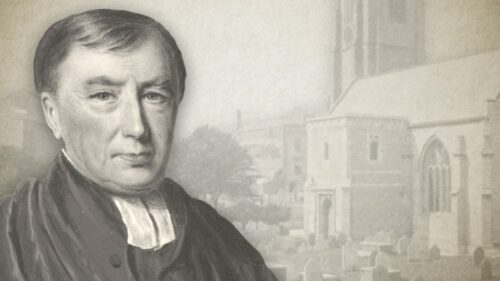
September 1—Morning Devotion
“And his name, through faith in his name, hath made this man strong.”—Acts 3:16
My soul, begin this month as the Lord in mercy hath enabled thee to begin some that are past, in taking the name of Jesus for thy theme. Let his name be as ointment poured forth, whose fragrancy shall make thee strong, as it made the poor man whole. And as the Lord hath opened a new month to thee in grace, do thou take up his name, through faith in his name, in praise and prayer. And see to it, my soul, that through the month, and indeed the whole of life, improve his name in every case, in every want, in every need. Depend upon it, his name will answer all. Whatever thy necessities are, in Jesus’s name there is a supply for all. Art thou poor, he is rich: sick, he is thy health; weak, he is strong; sinful, he is the Lord thy righteousness. Every thing, and in every way, upon all accounts, and upon all occasions—his name, through faith in his name, is the universal charm, the everlasting remedy, supply, comfort, strength of all. Jesus hath every thing, and all things; and he hath them all for his people. Oh then, my soul, look to Him and his name, for the suited grace in every time of need! He will, as the Psalmist sweetly reasons—he will, nevertheless, (notwithstanding all thy undeservings, this nevertheless is still in the covenant,) he will save for his name’s sake, that he might make his mighty power to be known.
Robert Hawker (1753-1827) was an Anglican (High-Calvinist) preacher who served as Vicar of Charles Church, Plymouth. John Hazelton wrote of him:
“The prominent features…in Robert Hawker's testimony…was the Person of Christ….Dr. Hawker delighted to speak of his Lord as "My most glorious Christ.” What anxious heart but finds at times in the perusal of the doctor's writings a measure of relief, a softening, and a mellowing? an almost imperceptible yet secret and constraining power in leading out of self and off from the misery and bondage of the flesh into a contemplation of the Person and preciousness of Christ as "the chiefest among ten thousand and the altogether lovely." Christ and Him crucified was emphatically the burden of his song and the keynote of his ministry. He preached his last sermon in Charles Church on March 18th, 1827, and on April 6th he died, after being six years curate and forty-three years vicar of the parish. On the last day of his life he repeated a part of Ephesians 1, from the 6th to the 12th verses, and as he proceeded he enlarged on the verses, but dwelt more fully on these words: "To the praise of His glory Who first trusted in Christ." He paused and asked, "Who first trusted in Christ?" And then made this answer: "It was God the Father Who first trusted in Christ."
Robert Hawker on the Biblical Covenants (Complete)
Robert Hawker's Poor Man's Morning Portions





